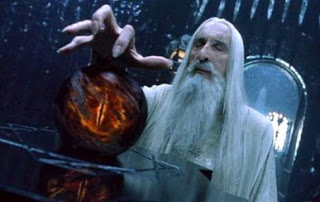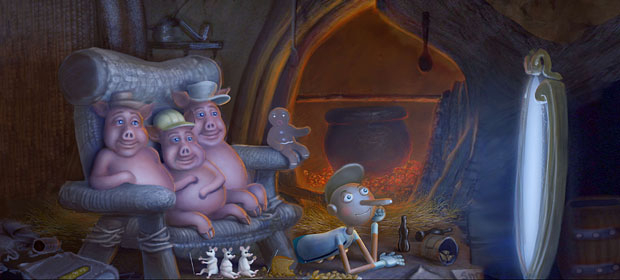Inspired by recent watching of Shrek 2 and by Lord of The Rings:
When talking about magical Orbs or Mirrors, we have mostly in mind above picture. Skilful mage operates hard to obtain device. But what if Shrek 2 approach would be in place?
I got blown away with the idea of having some magical "entertainment" device. So lets postulate several things:
- We are in generic fantasy settings, with magic
- Magical mirrors are easy to make, easy to obtain and easy to operate (commands given by natural language speech)
- Any magical mirror can "connect" to any other magical mirror.
- Any owner of magical mirror can "set up" their device to: "Accept all connections / Accept known connections only / Ask about any connection" and this setting can be changed any time
- To connect to another mirror, you have to be able to uniquely identify such mirror, and
- Each mirror has unique identifier
Now, the last two give me troubles. I need to come up with good identifier system which could be believably used in fantasy setup by "turkey plucker" (commoner with really low IQ).
Yes, I could steal IP protocol from our world, but it looks too much tech and it assumes that you can count to at least 255.
So what would be good addressing system to allow me easily use the mirrors? Such system should be able to hold at least million addresses, preferably one billion unique addresses (magic mirrors are very common and one person can have more than one mirror)


